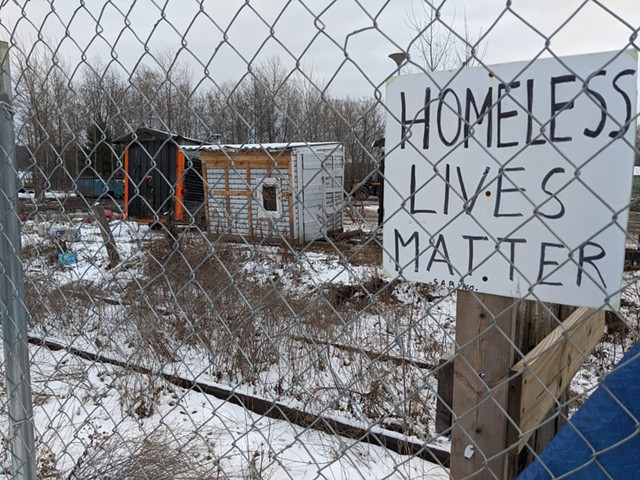
- File: Courtney Lamdin ©️ Seven Days
- A sign at the former Sears Lane encampment
The City of Burlington will use federal coronavirus relief funds to build a community of "shelter pods" for unhoused residents.
The nearly $3 million plan, which won unanimous support from Burlington city councilors Monday night, also calls for hiring a new city staffer to help end chronic homelessness.
"I just hope everyone shares the sense of hopefulness and belief that we can make progress on this long-standing challenge," Mayor Miro Weinberger said. "I'm hopeful we're on the cusp of making a big step forward."
The proposal was one of two resolutions introduced Monday night aimed at helping the city's homeless population. The second, a proposed update to the city's ordinance that bans camping on public lands, also passed unanimously.
City officials proposed the shelter pods after a citywide
survey indicated "overwhelming" support for spending a portion of the city's $27.3 million in
American Rescue Plan Act funds to address chronic homelessness. The proposal will use $1.47 million to construct between 25 and 30 "pods," or tiny shelters, in an as-yet undetermined location.
Cities such as
Madison, Wis., and Seattle, Wash., have used the modules with success, according to Burlington officials. The Queen City's pods would be between 60 and 120 square feet and outfitted with heat and electricity but not plumbing.
The city would also use $970,000 to build a "community resource center" which would include a low-barrier warming shelter with access to food, phones and first aid. Staff would help connect visitors with mental health services and assist them with finding permanent housing, among other services.
The facility would be the second low-barrier shelter in the city. The other, at the former Champlain Inn on Shelburne Road, has been operated by the nonprofit ANEW Place since fall 2020.
The city would use the rest of the cash to hire the new city staffer and to bolster the Champlain Valley Office of Economic Opportunity's "coordinated entry" system that helps find housing for people in need.
Later in the meeting, councilors discussed a potential
amendment to the city's ordinance that bans camping in public parks. Introduced by Councilor Joe Magee (P-Ward 3), the new version addresses camping on all public
lands, not only parks. Under the proposal, camping would still be prohibited in some areas but "no person should be arrested" for doing so, it says.
"This is really about moving forward with a policy that protects the most vulnerable folks in our community in a way that affords them dignity and respect," Magee said.
The ordinance would build on a policy that the city began using in 2019 as part of a
legal settlement. At the time, the policy was reviewed by the council's Public Safety Committee but wasn't formally adopted by the full council until Monday night. Magee said the ordinance would codify some of that policy's protections.
His resolution comes after Mayor Weinberger's controversial decision last fall to close the Sears Lane encampment, which had existed on city-owned property for years. In October, the mayor said that the drug activity, accumulated trash and fire hazards at the camp constituted a public health emergency. The city
leveled the encampment in December.
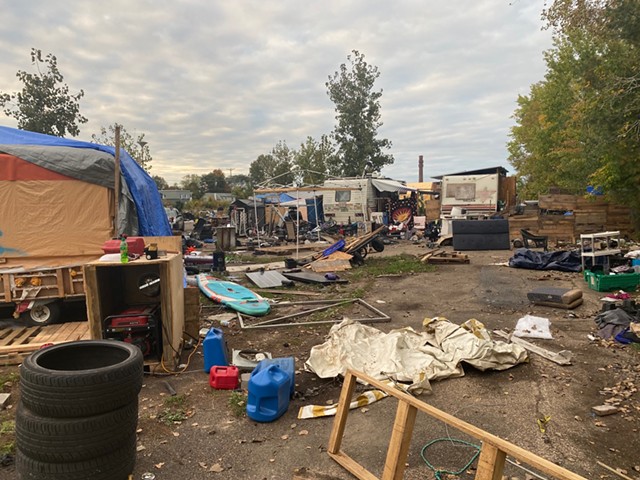
- File: Sasha Goldstein ©️ Seven Days
- The Sears Lane encampment
Under the proposed ordinance, the city wouldn't remove encampments from places where camping is allowed unless there are "immediate and substantial threats to human life, health, and property, or the ecology and environmental sensitivity of the area." It would also ban camp removals between October and May unless there's an emergency. In the event of a removal during the colder months, the city would provide people an alternative place to shelter.
The ordinance also says that campers would have 14 days to appeal the city's decision and 30 days to leave. If emergency conditions exist, the camper would have the chance to "abate the danger" before being evicted, it says. In all cases, the city would provide campers with information on available shelters and store their belongings for a period of 90 days.
Some councilors were wary of Magee's specific proposal but agreed that the current policy could be refined. Councilor Mark Barlow (I-North District) said he's volunteered at clean-up days in Leddy Park, where unauthorized encampments have created public health hazards. He worried that Magee's proposal would weaken the existing ordinance when it should be strengthened.
Councilor Sarah Carpenter (D-Ward 4) said Magee's proposal is "a significant leap" from the current policy and that advancing it to a council committee doesn't mean Magee's version will come to pass. "What we really need to do is get input from everybody," she said.
Indeed, the proposal is far from final. Councilors voted to refer the language to the council's Community Development and Neighborhood Revitalization Committee for further discussion. The city attorney's office will review the proposed language and submit a memo "on the benefits, precedents, and possible concerns" to the council by April 15.
Earlier in the meeting, councilors heard from City Attorney Dan Richardson about how to maintain order in council proceedings.
City Council President Max Tracy (P-Ward 2) asked for the work session after council meetings last year became
increasingly uncivil. Speakers during the meetings' public forums routinely blew past their two-minute allotted speaking time, and audience members regularly swore and yelled at councilors during their remarks, despite warnings.
Richardson's memo suggested several "potential tools" to address antagonistic behavior, including appointing a sergeant-at-arms to deal with overly disruptive people, and developing a formal code of conduct with "specific consequences or ranges of consequences for infractions." He also suggested councilors hold a work session with the public to discuss good civil discourse.
Councilor Perri Freeman (P-Central District) supports finding ways to make meetings more manageable but is wary of creating rules that tamp down civil disobedience and protest — what Freeman called "disruptions that can have a historic nature, a very political nature."
Freeman also wondered if the recent rowdy discourse is due to the stress caused by two years of the pandemic.
"I wouldn't want to rush forward with something if we're sort of just in a moment," Freeman said, "though I'm not opposed to looking at it."
Councilor Joan Shannon (D-South District) wondered if the council should give speakers longer than two minutes to speak, and suggested that if a person continually breaks the rules, they would be moved to the end of the speaking list at the following meeting.
She proposed that councilors hold a retreat to discuss the issue further. Tracy agreed to poll councilors and report back.







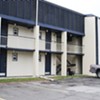


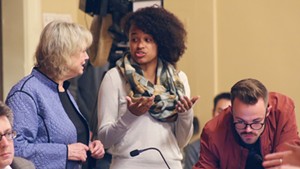

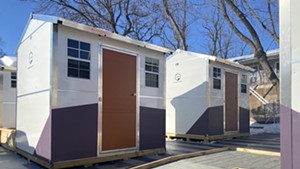
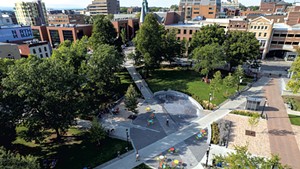





Comments
Comments are closed.
From 2014-2020, Seven Days allowed readers to comment on all stories posted on our website. While we've appreciated the suggestions and insights, right now Seven Days is prioritizing our core mission — producing high-quality, responsible local journalism — over moderating online debates between readers.
To criticize, correct or praise our reporting, please send us a letter to the editor or send us a tip. We’ll check it out and report the results.
Online comments may return when we have better tech tools for managing them. Thanks for reading.